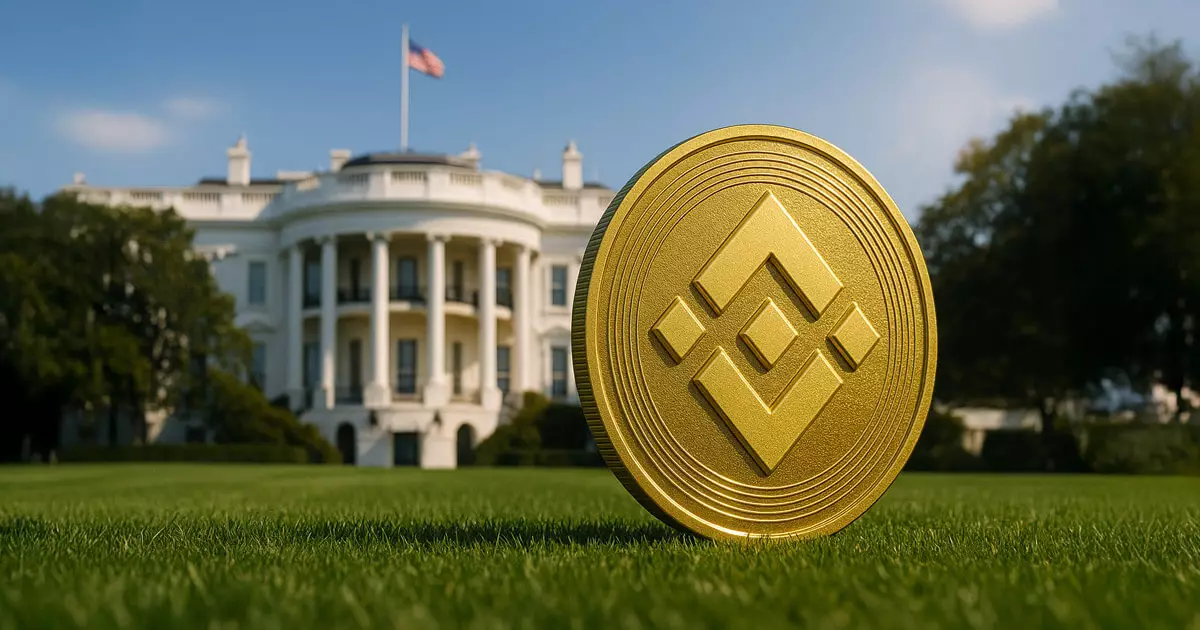As the political landscape continues to be marred by contentious ties between influential figures and powerful corporations, recent calls from Democratic senators for a probe into President Donald Trump’s alleged connections with the cryptocurrency exchange Binance raise a multitude of ethical and regulatory questions. The underlying tension between financial innovation in cryptocurrency and the potential for manipulation or illicit activities comes into stark relief as prominent lawmakers voice their concerns. It’s about time someone pulled back the curtain on these elite financial mechanisms.
Who Benefits from Unregulated Cryptography?
The bi-partisan debates surrounding cryptocurrency often overlook one critical factor: who truly benefits from these financial platforms? Senators Chris Van Hollen, Elizabeth Warren, Sheldon Whitehouse, and Richard Blumenthal, the authors of the recent letter to the Treasury and Justice Departments, are right to question how Trump-affiliated entities manage to dance so brazenly with entities like Binance, which admittedly has a checkered legal history. The concern that a partnership could flourish in this murky environment suggests a lack of accountability that has dire implications for the integrity of both our financial markets and democratic processes.
Moreover, the alarming speed with which alleged corrupt practices manifested—like the supposed discussions regarding presidential pardons for Binance’s former CEO, Changpeng Zhao—further complicates an already convoluted narrative. Zhao’s history and the legal ramifications of his dealings represent a red flag that cannot be ignored. This is not merely another case of business as usual; it’s a potential roadmap to financial transgressions under the guise of innovation.
Crypto’s Role in Political Financing
What makes the situation more insidious is the intertwining of cryptocurrency with political financing. The fact that Abu Dhabi-based MGX is co-opting stablecoin USD1 for a staggering $2 billion investment in Binance—subsequently linked to Trump’s hefty artificial intelligence infrastructure initiative—is a stark reminder that crypto can serve as a powerful vehicle for both capital generation and subversive political maneuvering. The politically connected players who stand to gain within this ecosystem dictate the rules of engagement, while the average American remains at the periphery, grappling with regulatory ambiguity and the erosion of trust in financial institutions.
The rationale behind lawmaker concerns should reverberate far beyond partisan divides. If a company like Binance is able to sidestep accountability due to political ties, the one that truly suffers is democracy itself—along with the citizens left vulnerable to the caprices of unregulated financial practices.
Regulatory Oversight that Shouldn’t Be Optional
As investigations unfold, the crucial question remains: Can we depend on the institutions meant to safeguard against financial improprieties to hold the powerful accountable? The senators rightly demand clarity regarding Binance’s compliance with existing regulations and its conformed plea agreements, yet skepticism about whether any punitive measures will manifest looms large. The prospect of allowing such a questionable entity to operate unburdened in the U.S. underscores a critical failure of due diligence.
In an age of widespread digital transactions, complacency towards entities engaged in financial misconduct reflects an even larger dilemma: an unsettling acceptance of the idea that the powerful are above scrutiny. Addressing the intersection of crypto and politics with transparency and vigilance is not a choice but an obligation to uphold democratic values. Without robust examination and intervention, the narratives surrounding these connections threaten to undermine the very fabric of what it means to operate within a fair and just marketplace.


Leave a Reply